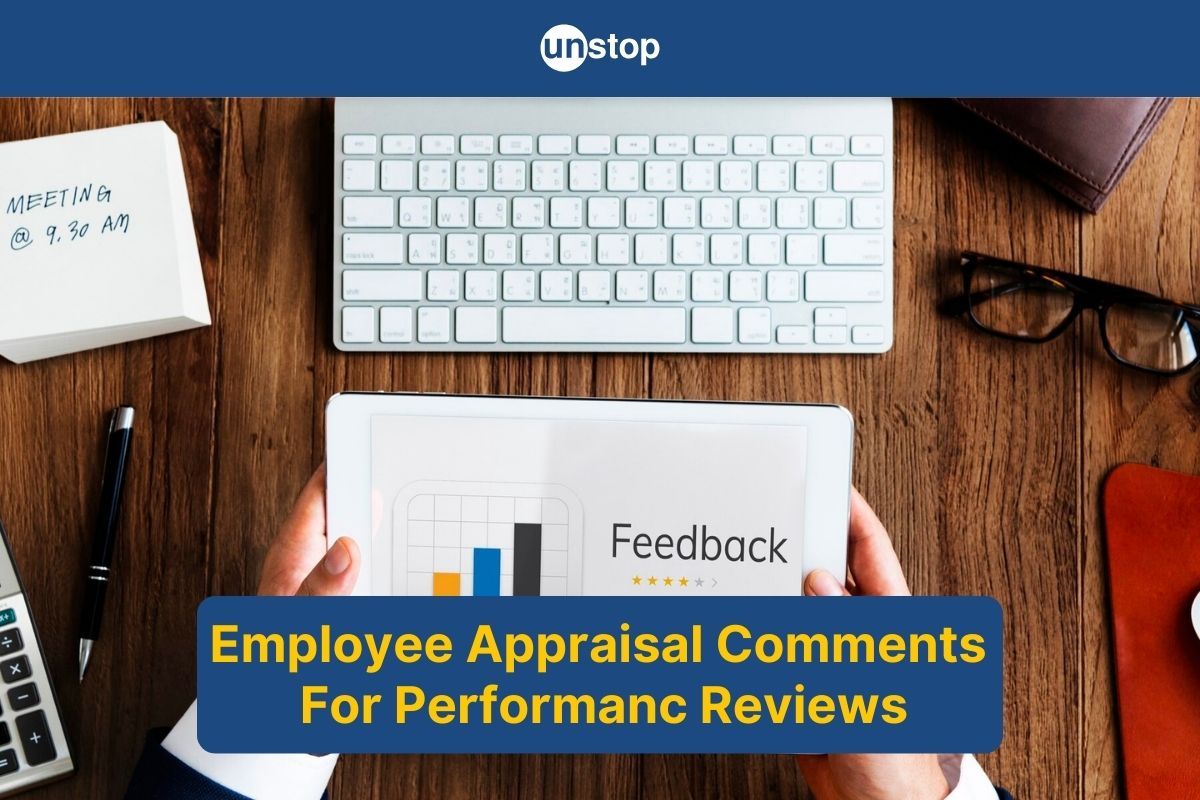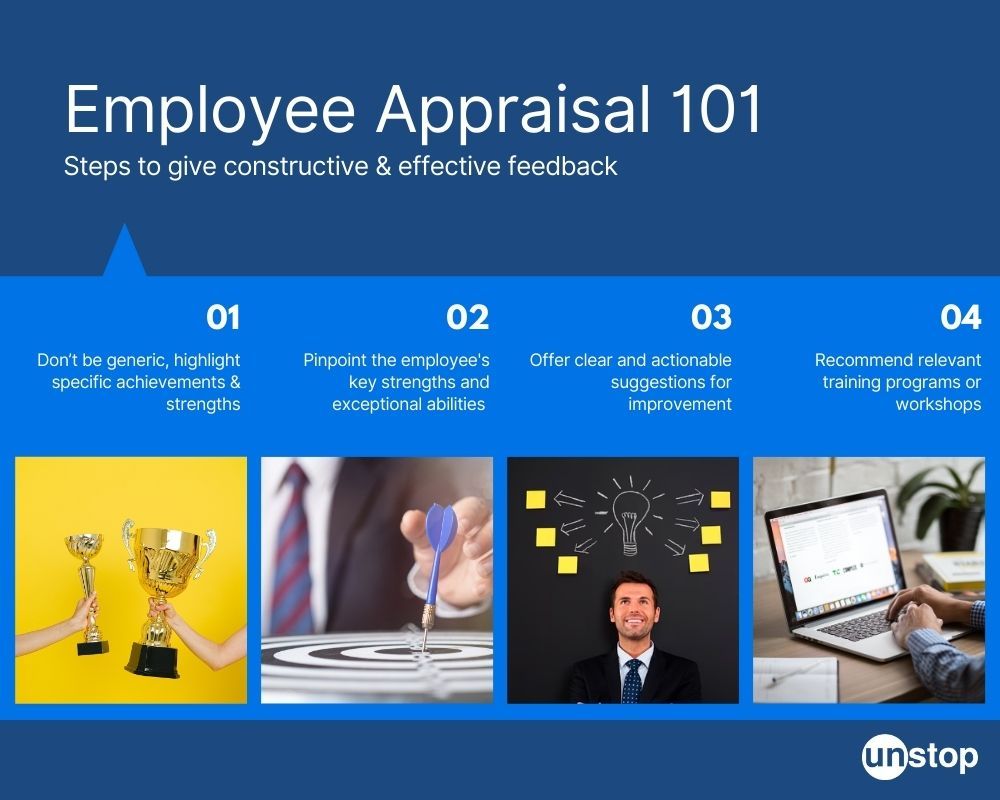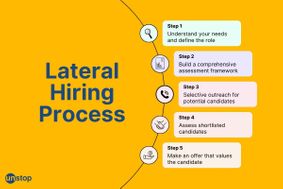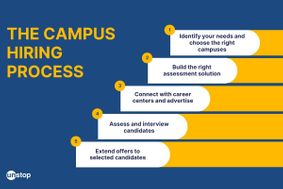- Top Employee Onboarding Software
- Why Use Employee Onboarding Software?
- Key Features of Effective Onboarding Software
- How To Choose The Right Onboarding Software?
- Which is the Best Onboarding Software?
- Frequently Asked Questions (FAQs)
- What Is Upskill And Reskill?
- Difference Between Reskilling And Upskilling
- Upskilling for Workplace Advancement
- Reskilling for Career Transformation
- Crafting Successful Upskill and Reskill Strategies
- Upskill And Reskill Strategizing: Things to Keep in Mind
- Measuring the Impact of Skill Development Initiatives
- Frequently Asked Questions
- What’s a Skill Gap?
- Employee Skill Gap Analysis: Why Do We Need It?
- How To Conduct Employee Skill Gap Analysis?
- Addressing Skill Gaps Through Training and Hiring
- Utilizing Skills Gap Analysis for Strategic Planning
- Leveraging Employee Skill Gap Analysis: Things To Keep In Mind
- Frequently Asked Questions
- Transformative Role of AI in Talent Acquisition
- Impact of AI on Business Recruiting
- Overcoming Challenges in AI-Driven Talent Acquisition
- Starting with AI in Talent Acquisition
- Future Landscape of AI in Talent Acquisition
- Frequently Asked Questions
- HR In The Hot Seat - Challenges With Evolving Workforce
- Mastering Effective HR Management: Tips For Overcoming Challenges
- Summing Up
- The Future of HR: Key Trends for 2024
- Skill-Based Hiring
- Prioritizing Employee Experience, Engagement & Well-being
- AI-Empowered Workforce Evolution and Its Impact
- Taking Diversity, Equity, and Inclusion Beyond Mandates
- Hybrid and Remote Work
- Embracing the Gig Economy and Blended Workforce
- Transparent HR Practices
- Climate Change Adaptation in HR Practices
- Leveraging HR Analytics for Data-Driven Decisions
- Continuous Learning & Development to Improve Productivity
- The Office Buzz in 2024
- Bottom Line - HR Operating Model Needs A Shift
- Importance and Impact of Recognizing Employee Birthdays
- Professional Birthday Wishes for Employees (All Experience Levels)
- Personalized Birthday Wishes for Employees in Different Roles
- Fun Birthday Wishes for Employees (with Templates)
- Birthday Wishes for Remote Employees
- Heartfelt Birthday Wishes for Employees
- Belated Birthday Wishes for Employees
- Simple & Sweet Birthday Wishes for Employees
- Celebrating Employee Birthdays: Ideas and Traditions
- Tips and Ideas for Sending Birthday Wishes to Employees
- Closing Thoughts
- Frequently Asked Questions
- What Is An Employee Referral?
- Benefits of Implementing Employee Referral Programs
- Setting Up an Effective Employee Referral Program
- Employee Referral Email
- Employee Referral Scheme
- Overcoming Challenges of Employee Referrals
- Companies with Best Employee Referral Programs
- Employee Referral Programs: Best Practices
- Closing Thoughts
- Frequently Asked Questions (FAQs)
- Importance of Team Building Activities
- Types of Team Building Activities
- Outdoor Team Building Activities for Employees
- Indoor Team Building Activities for Employees
- Easy Team Building Activities for Remote Employees
- Team Building Activities For New Employees (Icebreakers)
- Fun Team Building Activities for Different Goals
- To Boost Communication and Collaboration
- To Reduce Stress Levels and Promote Well-being
- Aligning Team Purpose and Values with Strategic Activities
- Final Remarks
- Frequently Asked Questions
- Importance of Employee Appreciation Quotes
- Work Appreciation Quotes for Employees
- Employee Appreciation Quotes for Hard Work Recognition
- Employee Appreciation Quotes for Teamwork and Collaboration
- Appreciation Quotes for Celebrating Employee Anniversaries and Milestones
- Employee Appreciation Quotes for Strong Work Ethics
- Employee Appreciation Quotes for Project & Goal Completion
- Employee Appreciation Quotes for Quality of Work
- Employee Appreciation Quotes for Creativity and Innovation
- Appreciation Quotes for Managers
- Peer-to-Peer Employee Appreciation Quotes
- Appreciation Quotes for Employees Leaving the Company
- Employee Appreciation Quotes for Thoughtful Gestures
- Funny Employee Appreciation Quotes
- Short Employee Appreciation Quotes
- Employee Appreciation Quotes for Different Roles
- Employee Appreciation Quotes for Senior Leadership
- Creative Ways to Use Employee Appreciation Quotes
- Summary
- Frequently Asked Questions (FAQs)
- What is Employee Satisfaction?
- Importance of Employee Satisfaction
- Objectives of Employee Satisfaction
- Employee Satisfaction vs. Employee Engagement
- Key Reasons for Employee Dissatisfaction
- Strategies for Improving Employee Satisfaction
- Ways to Measure Employee Satisfaction
- Best Practices for High Employee Satisfaction
- Final Remarks
- Frequently Asked Questions (FAQs)
- How to Craft Effective Employee Appraisal Comments
- Key Areas to Focus in Performance Review
- Comments On Hard Work & Dedication
- Assessing Interpersonal Skills
- Evaluating the Ability to Collaborate & Work in Teams
- Gauging Punctuality
- Commenting on Communication Style
- Reviewing Time Management and Productivity
- Leadership in Performance Appraisals
- Assessing Creativity & Innovation
- Evaluating Problem-Solving Abilities
- Recognizing Flexibility and Dependability in Reviews
- Employee Appraisal Comments for Different Roles
- Summary
- Frequently Asked Questions (FAQs)
- Employee Grievance Meaning
- Importance of Employee Grievance Process
- Types of Workplace Grievances
- Reasons for Employee Grievances
- Employee Grievance Procedure
- Steps in the Employee Grievance Handling Process
- Employee Grievance Form Example
- Final Remarks
- Frequently Asked Questions (FAQs)
- What is Company Culture?
- Importance of Company Culture
- Types of Company Culture
- Factors Contributing to Organizational Culture
- Assessing & Developing Corporate Culture
- Company Culture - It’s not just Perks or Feels
- Good Company Culture Examples
- Developing Company Culture: Best Practices
- Closing Thoughts
- Frequently Asked Questions (FAQs)
- What is Employee Empowerment?
- Benefits of Empowering Employees
- Employee Empowerment vs. Micromanagement
- Strategies for Effective Employee Empowerment
- Role of Managers in Fostering Empowerment
- Organizational Structure Supporting Empowerment
- Overcoming Barriers to Employee Empowerment
- Frequently Asked Questions (FAQs)
- What is Employer Branding?
- Importance of Employer Branding Strategy
- How to Build an Employer Branding Strategy?
- Strategies for Building a Strong Employer Brand
- How to Measure and Boost Your Employer Branding Success?
- Examples of Strong Employer Brand Strategy
- Best Practices for an Effective Employer Branding Strategy
- Closing Thoughts
- Frequently Asked Questions (FAQs)
- What are Employee Wellness Programs?
- Importance of Employee Wellness Programs
- Examples of Employee Wellness Programs
- Real-Life Examples of Corporate Wellness Programs
- Strategies for Encouraging Participation
- Supporting Diverse Employee Needs
- Creating Comprehensive Wellness Programs
- Measuring the Impact on Business and Employees
- Closing Thoughts
- Frequently Asked Questions (FAQs)
- What is Talent Management?
- Developing a Winning Talent Management Strategy
- Models and Frameworks
- Tips for Framing Effective Talent Management Strategy
- Looking Ahead: Recent Trends in Talent Management
- Frequently Asked Questions
- Role of AI in HR: Addressing Common Challenges
- Artificial Intelligence in HR Processes
- AI Tools for HR Functions
- How to Adopt AI in HR?
- Addressing Challenges of AI in HR
- Ethical and Responsible AI Use
- The Future of AI in HR
- Closing Thoughts
- Frequently Asked Questions
- What is Performance Management?
- Elements of Effective Performance Management
- Performance Management Cycle
- Differentiating Performance Management
- Benefits of Performance Management With Examples
- Challenges faced in Performance Management and their Solutions
- Future Trends in Performance Management
- Frequently Asked Questions
- Changing Role of HRM
- Changing Role Of HR Manager
- Technology and the Changing Role of HRM
- The Rise of AI and Machine Learning in HR
- Mobile Technology's Impact on HR Practices
- The Significance of People Analytics in HR
- Navigating the Future of HR Technology
- Final Remarks
- Frequently Asked Questions
- Compensation Management Meaning
- Compensation Types
- Breaking Down The Compensation Management Process
- HR Software for Compensation Management
- Current Trends in Compensation Management
- Frequently Asked Questions
- Defining Flexible Work Arrangements
- Flexible Working: Advantages for Businesses
- Challenges of Flexible Work Arrangements
- Crafting Flexible Working Practices
- Types Of Flexible Work Arrangements
- Comparing Flexible Work Arrangements
- Real-Life Examples of Flexible Work Arrangements
- Final Remarks
- Frequently Asked Questions
- Conflict Resolution Meaning
- Conflict Origins
- Tried & Tested Conflict Resolution Strategies
- Methods of Conflict Management at Workplaces
- Conflict Resolution Strategies: Top Management Tips
- Summary
- Frequently Asked Questions
- Career Development Meaning
- Career Development Plan for Employees
- Career Development in HRM: Growth Ideas For Employees
- Issues in Career Development and Their Solutions
- Closing Thoughts
- Frequently Asked Questions
- Understanding Compensation
- Exploring Benefits
- Difference between Compensation and Benefits
- Compensation & Benefits Structure
- Final Remarks
- Frequently Asked Questions
- Defining Recruitment in HR Practices
- Exploring Talent Acquisition in HR
- Understanding Talent Acquisition vs Recruitment
- When to Recruit or Acquire Talent
- Talent Acquisition vs Recruitment: Responsibilities
- From Recruitment To Talent Acquisition
- Closing Thoughts
- Frequently Asked Questions
- Work Culture Meaning
- Types of Work Cultures
- Components of Culture
- Best Work Culture Examples Set By Top Companies
- Creating a Positive Work Culture
- Closing Thoughts
- Frequently Asked Questions
- Defining Learning vs Development
- Importance of Learning and Development
- L&D Activities for Employees
- Choosing the Right L&D Activities
- Crafting an Effective L&D Strategies
- Aligning L&D Strategy with Business Goals
- Designing Engaging Learning Journeys
- Learning and Development Process: KPIs
- ROI in Learning and Development
- Emerging Trends in L&D
- Closing Thoughts
- Frequently Asked Questions
- What Is Leadership Development?
- Key Skills for Leaders
- How To Develop Leadership Skills in Organizations?
- What Is A Leadership Development Program?
- How To Develop A Leadership Development Program?
- Example of A Leadership Development Plan
- Benefits of Leadership Development Training
- Frequently Asked Questions
- Defining Diversity Training
- Importance of Diversity Training
- What are the Types of Diversity?
- Types of Diversity Training Methods
- Diversity Training Activities
- Choosing A Diversity Training Program
- How to Implement Diversity Initiatives
- Best Diversity Training Programs (Real-Life Examples)
- Improving the Effectiveness of Diversity Training
- Tracking and Evaluating the Results of DE&I Training Efforts
- Essential Elements for Successful Diversity Training
- Closing Thoughts
- Frequently Asked Questions
- Defining Occupational Health & Safety
- Evolution of Workplace Health and Safety
- Identifying Common Workplace Hazards
- Global Impact on Occupational Health & Safety
- Managing Employee Health and Safety Risks
- Occupational Health and Safety Problems
- Future of Occupational Health and Safety
- Frequently Asked Questions
- Employee Orientation Defined
- Employee Onboarding Explained
- Orientation and Onboarding: Understanding the Difference
- Importance of Orientation and Onboarding
- Crafting Comprehensive Integration Strategies
- Quick Tips for Orientation and Onboarding
- Frequently Asked Questions
- What is HR Metrics?
- Importance of HR Metrics
- HR Metrics Examples in Recruitment
- HR Metrics Examples in Employee Retention
- HR Metrics Examples in Revenue
- Other Common HR Metrics
- Soft HR Metrics Example
- HR Metrics Formula
- Utilizing HR Metrics Effectively
- Future of HR Metrics
- Summary
- Frequently Asked Questions
- Defining Decision Making Process
- Key Concepts In Decision Making
- Decision Making & Problem Solving
- Tips For Improving Decision Making Skills
- Selected Practice Questions & Answers
- Conclusion
- Frequently Asked Questions (FAQs)
- A case(s) of miscommunication
- The devil is in the (resume) details
- One for the complaints!
- What is an Exit Interview?
- Benefits of Exit Interviews to an Organization
- How to Conduct Exit Interviews?
- Exit Interview: Sample Questions to Ask
- Overcoming Challenges of Exit Interviews
- Exit Interviews: Best Practices
- Closing Thoughts
- Frequently Asked Questions
- Technology in the Workplace
- Benefits of Tech Integration
- Technology in the Workplace: Key Functions
- How Technology Normalized Remote Work
- Workplace Technology: Top Tools and Software
- Steps for Effective Technology Implementation
- Overcoming Tech Implementation Challenges
- Ethical Considerations in Tech Use
- Keeping Pace with Tech Trends
- Closing Thoughts
- Frequently Asked Questions
- What is Ethical Leadership?
- Principles of Ethical Leadership
- Difference between Ethics and Integrity
- Importance of Ethical Leadership
- Ethical Leadership in Practice
- Overcoming Challenges
- Frequently Asked Questions
- Embracing Change Management
- Mastering People Analytics
- Enhancing Stakeholder Relationships
- Navigating Diversity, Equity & Inclusion
- Upholding Ethics and Data Privacy
- Developing Critical Thinking
- Advancing Negotiation Techniques
- Fostering Inter-departmental Collaboration
- Building Resilience in HR
- Frequently Asked Questions
- What is Mental Health?
- Benefits of a Mentally Healthy Workforce
- Prioritising Mental Health: Creating a Culture of Support
- Final Remarks
- Frequently Asked Questions
- Gen Z vs Millennials - What is the difference?
- Retain and Engage Gen Z Employees: Need and Strategies
- Strategies to Retain and Engage Gen Z Employees
- Rethinking Requirements
- Final Remarks
- Frequently Asked Questions
- Understanding Millennial Leadership Needs
- Key Leadership Skills for Millennials
- How To Develop Millennial Into Leaders
- Additional Strategies to Develop Leaders
- Learning Preferences of Millennials
- Benefits of Investing in Millennial Leaders
- Closing Thoughts
- Frequently Asked Questions
- Understanding Fluff
- Examples of Interview Fluff
- Identifying Interview Fluff
- Addressing Interview Fluff
- Seeing Through the Fluff
- Frequently Asked Questions
- What is the Gender Pay Gap?
- Is the Gender Pay Gap Real?
- Factors Affecting the Gender Pay Gap
- How Age Impacts Women’s Earnings
- The ‘Motherhood Penalty’
- Education's Role in Wage Differences
- Racial and Ethnic Disparities in Pay
- Closing the Gender Gap
- Frequently Asked Questions
- Top Weirdest Late-To-The-Office Excuses
- The Fine Art of Balancing Wit and Wisdom in HR
- Understanding Social Media Recruiting
- Crafting Your Social Media Recruitment Strategy
- Implementing Your Strategy Effectively
- Popular Platforms for Recruitment
- Navigating the Downsides of Social Media Recruiting
- Measuring Success and Adjusting Strategy
- Summary
- Frequently Asked Questions
- Who Is A High Potential (HIPO) Employee?
- Characteristics of A High Potential (HIPO) Employee
- High Potential Employee Identification
- Grooming High Potential Employees
- Why High Potential Employees Leave
- How Do You Retain High Potential Employees?
- High Potential Employee Development: Best Practices
- Closing Thoughts
- Frequently Asked Questions
- What is Digital Fluency?
- Why Digital Fluency Matters?
- Difference between Digital Literacy and Digital Fluency
- Key Components of Digital Fluency
- Achieving Digital Fluency
- Overcoming Challenges
- Future of Workforce Digital Fluency
- Frequently Asked Questions
- What is Loud Quitting?
- Pros and Cons of Loud Quitting
- Reasons Behind the Trend
- Analyzing the Impact
- How HR Can Navigate the Loud Quitting Uproar
- Preventive Strategies
- Closing Thoughts
- Frequently Asked Questions
- Defining Emotional Intelligence in HR
- Why Emotional Intelligence Matters for HR Leaders
- How To Build Emotional Intelligence in HR
- Integrating EQ into HR Practices
- Impact of EQ on Company Culture
- Emotional Intelligence in HR: Major Challenges
- Final Remarks
- Frequently Asked Questions
- Understanding Internal Job Posting
- Internal Job Posting: Pros and Cons
- The Internal Job Posting Process
- Writing Effective Ads for Internal Job Posting
- Strategies for Success of Internal Job Posting
- Summary
- Frequently Asked Questions
- Understanding Workplace Bias
- Common Types of Bias in HR
- Closing Thoughts
- Frequently Asked Questions
- What is a Dry Promotion?
- Dry Promotion: Pros and Cons for Companies
- Impact of Dry Promotion on Employee Retention
- Preventing Talent Loss After Dry Promotions
- Closing Thoughts
- Frequently Asked Questions
- What Is A Stay Interview?
- Importance Of Stay Interviews
- Benefits And Challenges Of Stay Interviews
- Planning And Conducting Stay Interviews
- Stay Interviews: 20 Sample Questions To Ask
- Best Practices For Effective Stay Interviews
- Summary
- Frequently Asked Questions
- Who Is A Boomerang Employee?
- Reasons For Returning
- Benefits Of Hiring Boomerang Employees
- Challenges Of Rehiring
- Interviewing Boomerang Candidates: Sample Questions
- Enhancing The Hiring Process
- Making Informed Decisions
- Final Remarks
- Frequently Asked Questions
- Talent Pipeline Meaning
- Significance of Talent Pipelines
- Advantages of a Talent Pipeline
- Building a Talent Pipeline
- Maintaining a Talent Pipeline
- Attracting Top Talent
- Implementing the Strategy
- Frequently Asked Questions
- What is Micromanagement?
- Recognizing Micromanagement
- Leadership versus Micromanagement
- Keeping Micromanagement in Check
- Beyond Micromanagement
- Summing Up
- Frequently Asked Questions
- Recognizing Signs Of A Bad Hire
- Understanding The Impact On Teams
- Dealing With A Bad Hire
- Preventing Future Bad Hires
- Closing Thoughts
- Frequently Asked Questions
- Defining Neurodiversity
- Importance of Neurodiversity in the Workplace
- Moving Towards Inclusive Environments
- Final Remarks
- Frequently Asked Questions
- Understanding the Generation Gap
- Multigenerational Workforce: Debunking Stereotypes
- Strategies for Bridging the Gap
- Benefits of a Multigenerational Workforce
- Final Remarks
- Frequently Asked Questions
- Defining Productivity Theatre: All Show, No Go
- 5 Key Drivers of Fake Productivity
- Solutions to Combat Productivity Theatre
- Summary
- Frequently Asked Questions
- Defining Grumpy Staying
- Why do Grumpy Stayers not Leave?
- Recognizing the Signs
- Exploring the Causes
- Understanding the Impact
- Addressing the Issue
- Taking Action: Addressing Grumpiness with Empathy
- After the Conversation
- When Grumpy Staying Continues
- Closing Thoughts
- Frequently Asked Questions
- The Rationale Behind Office Peacocking
- Impact on Company Culture
- Impact on Employees
- Case Studies: Examples of Office Peacocking
- The Downside: Potential Pitfalls of Office Peacocking
- Practical Tips for Implementing Office Peacocking
- Frequently Asked Questions
- 13 Common Mistakes Young Managers Make
- Strategies To Avoid Mistakes (Individual Growth)
- How Young Managers Can Boost Teamwork
- Learning From Errors
- Summary
- Frequently Asked Questions
- Understanding Great Regret - What causes the shift shock?
- Impact of Great Regret
- How can HR help make the situation better?
- Closing Thoughts
- Frequently Asked Questions
- Understanding the HR Budget
- Key Components of an HR Budget
- Preparing an HR Budget Step-by-Step
- Importance of HR Budgeting in Management
- Final Remarks
- Frequently Asked Questions
- What are Pre-Employment Assessments?
- Importance of Pre-Employment Testing
- Types of Pre-Employment Assessments
- 15 Tips for Creating Effective Pre-Employment Assessments
- Closing Thoughts
- Frequently Asked Questions
- Exploring the Productivity Paradox
- Understanding the Impact of Solow Paradox
- Productivity Paradox: Why it Matters for Recruiters & HRs
- Identifying Causes and Challenges
- Strategies for Enhancing Productivity
- AI & the Modern-Day Productivity Paradox
- Beyond Technology: Building a Productive Workforce
- Summary
- Frequently Asked Questions
- Understanding the Great Reshuffle 2.0
- Preparing Leaders for the Change
- HR’s Role in Handling Great Reshuffling 2.0
- The Way Ahead
- Frequently Asked Questions
- Definition Of Managerial Grid
- Managerial Grid Theory Explained
- Application Of Managerial Grid
- Criticisms And Limitations
- Evolution And Contemporary Perspectives
- Integrating Managerial Grid With Other Models
- Practical Steps For Implementing Managerial Grid
- Conclusion
- Frequently Asked Questions
- Understanding Skills Taxonomy
- Why do we Need Skills Taxonomy?
- Benefits of Skills Taxonomy
- Components of Skills Taxonomy
- Building a Skills Taxonomy: A Step-by-Step Guide
- Skill Taxonomies vs Intelligence Tools
- Closing Thoughts
- Frequently Asked Questions
- Definition Of Team Building
- Stages Of Team Development
- Top 10 Strategies For Effective Team Building
- Team Building Activities
- Best Practices For Effective Team Building
- Setting Team Building Objectives
- Challenges In Team Building
- Conclusion
- Frequently Asked Questions (FAQs)
- Defining Job Shadowing
- Unpacking the Benefits
- Setting Up the Experience
- Job Shadowing vs Internship
- Dos and Don'ts for HR Professionals
- Closing Thoughts
- Frequently Asked Questions
- Employee Journey Mapping: Meaning & Importance
- Stages of the Employee Journey
- Steps for Effective Mapping
- Employee Journey Map: Where does it begin?
- Employee Journey Map: Template
- Best Practices & Tips
- Summary
- Frequently Asked Questions
- Why are Performance Appraisals needed?
- Evolution of Performance Management
- Modern Performance Practices
- Benefits of Modern Performance Appraisals
- The Future
- Frequently Asked Questions
- Is Experience the Sole Indicator of Success?
- Why Hire Inexperienced Talent?: Key Advantages
- Skills to Look For in Inexperienced Talent
- Challenges and Considerations in Hiring Inexperienced Talent
- Final Remarks
- Frequently Asked Questions
- What is a Company Retreat?
- Company Retreat Ideas: Team-Building & Exploration
- Relaxation and Celebration
- Planning Your Retreat: Things to Keep in Mind
- Closing Thoughts
- Frequently Asked Questions
- Understanding HR Forecasting
- HR Forecasting Key Concepts
- Steps for Implementing HR Forecasting
- Common HR Forecasting Methods
- Closing Thoughts
- Frequently Asked Questions
- What is ESG?
- HR and ESG - Why Care?
- ESG in HR Strategy
- Challenges for HR
- Future of ESG in HR
- Frequently Asked Questions
- Defining the Great Betrayal
- Reasons for Its Spread
- Impact on Workers
- Impact on Corporations
- Rebuilding Trust & Valuing Employees
- Closing Thoughts
- Frequently Asked Questions
- Importance of Clear Expectations
- Setting Expectations Early
- Communicating Expectations Effectively
- Differentiating Expectations
- Reviewing and Adjusting Expectations
- Summing Up
- Frequently Asked Questions
- Understanding KRA Frameworks And Models
- KRAs vs KPAs and KPIs
- Monitoring and Tracking KRAs
- KRAs in Various Roles
- Impact of KRA Frameworks and Models on Organizational Success
- Frequently Asked Questions
- Where: The Place of Work
- When: The Time of Work
- How Much Work: Alternate Employment Models
- Who Does the Work: Intelligence
- Designing Organizations with the Four Dimensions of Work
- Summing Up
- Simplifying Processes: The Foundation of Efficiency
- Reducing Unnecessary Meetings: Reclaiming Valuable Time
- Building Strong Accountabilities: Ensuring Responsibility
- Role of HR in Addressing Inefficiencies
- Continuous Improvement: A Commitment to Excellence
- Leadership's Role in Driving Efficiency
- Conclusion: A Holistic Approach to Efficiency
- Understanding Financial Freedom
- Benefits of Empowering Employees Financially
- Empowering Employees Through Financial Literacy
- Financial Topics That Need Attention Based On Career Stage
- Summing Up
- Frequently Asked Questions
- Defining Employee Voice
- Benefits of Amplifying Employee Voice
- Strategies and Tools
- Encouraging Participation
- Closing Thoughts
- Frequently Asked Questions
- Appraisal Blues: Signs of Unhappy Employees
- Addressing Unhappiness Post-Appraisal
- Non-Monetary Solutions for Dissatisfied Employees
- Summing Up
- Frequently Asked Questions
- Women in the Middle Eastern Workforce
- Importance of DEIB
- Role of HR in Building Inclusive Workplaces for Women
- Measuring Inclusion Progress: Key Metrics
- Closing Thoughts
- Frequently Asked Questions
- Preparing for the Conversation
- Conducting the Conversation
- Best Practices for the Talk
- After the Conversation
- Helping Employees Grow
- Frequently Asked Questions
- Understanding HR Exhaustion
- Factors Leading To HR burnout
- Impact Of HR Burnout
- Strategies To Prevent And Manage HR Burnout
- Role Of Technology In Preventing Burnout
- Celebrating HR Successes
- Summary
- Frequently Asked Questions
- Common Mistakes When Hiring Young Talent
- Building Connections with Candidates
- Summary
- Frequently Asked Questions
- Walking a mile in the employee’s shoes
- Conducting Humane Layoffs
- Remote Layoffs Management
- Supporting Laid-off Workers
- Managing the Aftermath
- Wrapping Up
- Frequently Asked Questions
- Importance of Shortening Time-to-Hire
- Shortening Hiring Time: Pre-Application Stage
- Reducing Hiring Time: Application Stage
- Hacks to Shorten Hiring Time: Interview Stage
- Reducing Hiring Time: Offer Stage
- 5 Other Important Hacks & Strategies
- Final Remarks
- Frequently Asked Questions
Employee Appraisal Comments: 115+ Phrases Divided By Skills & Roles

Employee appraisal comments are feedback provided to employees by their supervisors or managers to evaluate their performance, recognize achievements, and highlight areas for improvement.
From highlighting strengths to offering specific suggestions for enhancement, these insights are essential for managers to effectively navigate the appraisal process. However, crafting effective employee appraisal comments can be challenging, requiring a balance of positivity, areas for improvement, and actionable goals.
If you’re looking to master the appraisal season with actional feedback and positive reinforcement, then check out this list:
How to Craft Effective Employee Appraisal Comments

Highlight Specific Achievements and Accomplishments
Instead of providing generic feedback, highlight the specific achievements and accomplishments of employees. For instance, instead of saying "good job," you could mention how they successfully completed a challenging project ahead of schedule.
This specificity shows that you have paid attention to their work and appreciate their efforts. This improves employee satisfaction, making them feel valued and motivated to continue excelling in their roles.
Identify Key Strengths
Pinpoint the employee's key strengths and talents during the performance review. This involves recognizing their exceptional abilities, such as leadership skills, problem-solving capabilities, or creativity. By highlighting these strengths, employers can motivate employees and boost their confidence.
For instance, if an employee excels at project management, mentioning a successful project they led showcases their competence and dedication.
Give Suggestions for Improvement
When providing employee appraisal comments, it is crucial to offer clear and actionable suggestions for identified areas of improvement. For instance, instead of saying "Improve communication skills," you can provide specific examples like "Practice active listening during team meetings."
This type of feedback gives employees a tangible direction to work on their skills effectively, improving overall employee management. By offering precise guidance, employees can better understand what areas they need to focus on for improvement.
Provide Resources and Training Opportunities
Managers can recommend relevant training programs or workshops that align with the employee's needs. This way, employees not only receive feedback on their performance but also feel encouraged and supported in their journey towards professional development.
For example, if an employee struggles with time management, suggest techniques like using a task-tracking tool or attending a time-management training session.
Key Areas to Focus in Performance Review
A performance review broadly evaluates employees on their technical competence and soft skills.
Technical competence refers to how well employees perform their tasks. For example, for a content writer, this could be linked to the number and variety of articles written or ideas pitched.
Soft skills refer to the employee’s attitude towards work. It also focuses on how they interact with other teams and conduct themself at work. Here’s a look at some of the soft skills that managers can focus on:
- Dedication and Hard Work
- Contribution to Team Success
- Interpersonal Skills
- Collaboration & Teamwork
- Communication Style
- Leadership (Taking Initiative)
- Time Management and Productivity
- Flexibility and Dependability
- Creativity, Innovation, and Problem-Solving Abilities
Remember, this is a general list and the skills evaluated should align with the job role and overall company goals.
Comments On Hard Work & Dedication
Hard work and dedication drive individuals to achieve their goals and excel in their careers. Employees who are committed to putting in the effort and staying focused on their tasks are more likely to succeed and stand out among their peers. These qualities not only lead to personal growth and development but also contribute to the overall success of the organization.
Identifying key strengths & achievements
- “Your commitment to achieving results and exceeding expectations is truly admirable. Your dedication to your work is evident in everything you do, and it does not go unnoticed.”
- “Your dedication to excellence sets a great example for your colleagues and contributes greatly to the success of our team.”
- “Your positive attitude and willingness to go above and beyond in your role are truly appreciated. I am grateful to have you as part of our team.”
- “I've consistently observed your unwavering dedication and hard work, both individually and as a team player. Your exceptional work ethic is inspiring.”
- “You're always willing to take on additional tasks, help colleagues, and tackle challenging assignments with a 'can-do' attitude. Your hard work directly has positively impacted the team and the company as a whole.”
Indicating a need for improvement
- “Your work could benefit from a higher level of dedication and commitment. Please make an effort to prioritize tasks and complete them with more focus and determination.”
- “I have noticed a lack of consistency in your performance. Strive to be more hardworking and maintain a strong work ethic consistently.”
- “You must show more initiative in taking on tasks and completing them efficiently. Your dedication to your work will reflect in the quality of your output.”
- “Your productivity could be improved by putting in more effort and dedication towards your tasks. Aim to exceed expectations and show a proactive attitude towards your responsibilities.”
- “Being more hardworking and dedicated to your tasks will not only benefit you but also contribute to the overall success of the team.”
Assessing Interpersonal Skills

Assessing interpersonal skills involves evaluating an employee's organizational behavior, like the capacity to work effectively with others. Strong relationship-building skills enable individuals to connect with coworkers on a personal level, establish trust within teams, and create a supportive atmosphere that encourages collaboration.
Comments highlighting instances where the employee mediated conflicts successfully between peers or demonstrated empathy towards colleagues facing challenges can signify strong relationship-building capabilities.
Identifying key strengths & achievements
- "Your ability to build strong relationships with both colleagues and clients is truly impressive. Your interpersonal skills have made a significant impact on our team's cohesion and productivity."
- "Your knack for building rapport with a diverse range of individuals is commendable.”
- "Your exceptional interpersonal skills and your ability to listen, empathize, and communicate clearly set a great example for your peers."
- "Your friendly and approachable demeanor makes working with you a pleasure for everyone involved."
- "Your efforts to cultivate positive relationships have not gone unnoticed and are greatly appreciated."
Indicating a need for improvement
- “Your ability to empathize with coworkers in challenging situations is lacking, making it difficult to build strong relationships. Work on putting yourself in their shoes and showing understanding and support.”
- “Team members have mentioned feeling disconnected from you due to a lack of effort in building rapport. Make an effort to engage in small talk, show genuine interest, and find common ground to strengthen connections.”
- “Your approach to conflict resolution appears confrontational rather than collaborative, which can strain relationships. Try to remain calm, seek compromise, and focus on finding solutions that benefit everyone involved.”
- "There have been reports of feeling excluded or unsupported from your team members. Let's discuss ways you can be more inclusive and approachable."
- "During the [project name] meeting, your comments towards [colleague's name] came across as critical and hurtful. Consider practicing constructive criticism by focusing on the work itself and using 'I' statements."
Evaluating the Ability to Collaborate & Work in Teams

Observing how employees contribute to team projects, share ideas, and support colleagues can provide insight into their collaboration ability and teamwork skills.
Identifying key strengths & achievements
- “You consistently demonstrate strong collaboration skills by actively listening to team members and providing valuable input during group discussions.”
- “You are a reliable team player who consistently contributes to group projects with enthusiasm and a positive attitude, making collaboration a seamless and productive process.”
- "You have a talent for bringing people together and fostering a collaborative environment. You make it easy for diverse perspectives to be heard and integrated."
- "You understand the value of compromise and consensus building. You help team discussions stay productive and reach solutions that benefit everyone."
- "You're a true team player! Your willingness to collaborate, share ideas, and support colleagues is invaluable to our success."
- "You're always ready to lend a hand and go the extra mile to support your colleagues. Your collaborative spirit motivates others and strengthens our team dynamic."
Indicating a need for improvement
- "While you demonstrate strong individual skills, actively participating in team discussions and incorporating diverse perspectives can further enhance our results.”
- "Building strong relationships and effective communication are key to teamwork. Consider how you can cultivate empathy and active listening skills.”
- "Meeting deadlines and adhering to team agreements are crucial for collaboration. Let's explore strategies to improve time management and accountability."
- “You are a valuable asset to our team, and I appreciate your technical knowledge. However, there have been some instances where your independent approach impacted team collaboration and delayed deliverables. Let's discuss ways to ensure everyone feels involved and heard."
Gauging Punctuality
Punctuality demonstrates reliability, responsibility, and respect for others' time. It also shows professionalism and dedication to the job, leading to increased productivity and overall efficiency in the workplace.
Identifying key strengths & achievements
- “I want to commend you for your consistent punctuality in attending meetings. Your dedication to being on time sets a great example for the team.”
- “Your punctuality not only shows your respect for others' time but also demonstrates your commitment to our team's success. Thank you for always being prompt.”
- “Your punctuality is truly appreciated. It helps us start meetings on time and ensures we make the most of our work sessions.”
- “Your reliability in being punctual to meetings is a key strength that contributes to our team's efficiency and productivity. Keep up the great work!”
- “Your punctuality is a reflection of your professionalism and dedication to our team. Thank you for consistently being on time and ready to contribute.”
Indicating a need for improvement
- “Your consistent tardiness to meetings is impacting team productivity. Please make a conscious effort to be punctual in the future.”
- “Being late to work sets a negative tone for the day. It's important to arrive on time to ensure a smooth start to our projects.”
- “Punctuality is a sign of respect for your colleagues' time. Let's work together to ensure everyone's time is valued.”
- “Your late arrivals are causing disruptions to our workflow. Please prioritize being on time for meetings and work moving forward.”
- “Timeliness is a crucial aspect of professionalism. Let's strive to improve your punctuality to create a more efficient work environment.”
Commenting on Communication Style
When providing feedback on an employee's communication skills, it is crucial to address both verbal and written aspects. Effective communication involves clarity, active listening, empathy, and the ability to convey thoughts concisely.
- Verbal communication: Speaking clearly; actively listening; engaging in constructive dialogues.
- Written communication: Crafting coherent emails; preparing detailed reports; conveying messages effectively.
Identifying key strengths & achievements
- “Your ability to clearly articulate ideas and thoughts during team meetings has been instrumental in ensuring everyone is on the same page.”
- “I appreciate the way you write concise and informative emails that effectively convey important information to our team.”
- “Your strong verbal communication skills have been evident in your ability to effectively communicate with clients and address their needs.”
- “Your written communication, whether in project updates or reports, is always well-organized and easy to understand, which is crucial for keeping everyone informed and aligned.”
- "You adjust your communication style seamlessly to different audiences, ensuring your message resonates with everyone."
Indicating a need for improvement
- “Your communication with colleagues lacks clarity and often leads to misunderstandings. Try to be more concise and specific in your interactions to avoid confusion.”
- “You seem to struggle with active listening during team discussions, which can make others feel undervalued. Practice focusing on what others are saying without interrupting or getting distracted.”
- “Your body language and tone can seem dismissive or unfriendly to certain audiences. Be mindful of nonverbal cues and actively listen to colleagues to foster better communication.”
- “Your directness can be perceived as bluntness at times. Consider refining your communication to be assertive while remaining respectful of others' perspectives.”
- "Sometimes, your explanations can be overly technical or detailed, making it difficult for others to understand the key points."
Reviewing Time Management and Productivity

When reviewing time management skills, managers should assess how well an employee can determine which tasks are most crucial and urgent. Another critical aspect of time management and productivity evaluation is commenting on an employee's efficiency in completing assignments. This involves assessing how quickly and accurately they finish tasks assigned to them within the specified timeframe.
Supervisors should highlight instances where employees have shown exceptional speed without sacrificing quality.
Identifying key strengths & achievements
- "I want to commend you on your exceptional time management skills. Your ability to prioritize tasks and meet deadlines consistently is truly impressive."
- "Your productivity levels have been consistently high, and it's evident that you put in a lot of effort to ensure tasks are completed efficiently and effectively."
- "Your organized approach to work management keeps you ahead of deadlines and allows you to navigate unexpected challenges effectively."
- "Your strong time management skills have allowed you to take on additional responsibilities without compromising the quality of your work. Your efficiency is truly commendable."
- "You consistently deliver projects on time and within budget, demonstrating exceptional planning and execution skills."
Indicating a need for improvement
- "I've noticed that there have been instances where deadlines were missed. Let's work on improving your time management to ensure tasks are completed on time."
- "It seems like you may be juggling too many tasks at once, leading to inefficiencies. Let's discuss strategies to prioritize and manage your workload effectively."
- "Your productivity could benefit from setting clear goals and timelines for projects. Let's collaborate on creating a more structured approach to your work."
- "There have been occasions where your focus has shifted, impacting your overall productivity. Let's explore ways to minimize distractions and stay on track with your tasks."
- "Improving your time management skills can greatly enhance your overall performance. Let's work together on developing a plan to boost your efficiency and effectiveness."
Leadership in Performance Appraisals
When assessing employees’ leadership potential, observe how they take charge, make decisions, and motivate others. These are key indicators of strong leadership skills.
This also helps identify future leaders within the organization. However, be careful not to overlook quieter employees who possess valuable leadership qualities.
Identifying key strengths & achievements
- “I want to commend you for your exceptional leadership skills. Your ability to motivate and inspire your team is truly impressive.”
- “Your strategic thinking and decision-making have been key in navigating challenges and finding innovative solutions.”
- “Your willingness to take initiative and lead by example sets a high standard for the rest of the team to follow.”
- "You effectively delegate tasks, providing clear expectations and support, enabling your team to learn and grow."
- "You have fostered a high-performing team with strong morale and a positive work culture. "Under your leadership, the team has consistently achieved or exceeded key goals and objectives."
Indicating a need for improvement
- "While you possess technical expertise, clearly articulating a compelling vision to motivate and inspire the team would be beneficial."
- “There’s a need to seek feedback from your team and implement improvement strategies to build a more positive and productive work environment."
- “There’s often a lack of clarity among team members about assigned responsibilities. Providing constructive feedback and coaching, both formally and informally, can significantly improve team performance."
- “Have greater faith in your team’s ability to manage multiple tasks. Micromanaging is impacting their confidence, and taking on everyone’s work can lead to burnout. Delegating tasks more effectively, providing clear expectations, and offering support can empower your team to take ownership and grow.”
- “It’s important to recognize the team members whose performance exceeds expectations and create opportunities for your team's development. This would benefit their skills and career aspirations. Don’t hold back talented members.”
Assessing Creativity & Innovation
Employees should be recognized for their innovative ideas and creative thinking. For example, highlighting a project where they proposed a unique solution can boost their morale.
Acknowledging an employee's ability to think outside the box can motivate them to continue bringing fresh perspectives to the table. By recognizing their creative contributions, you are reinforcing positive behavior that benefits both the individual and the organization.
Identifying key strengths & achievements
- “Your ability to think outside the box has truly set us apart from the competition. Your ideas have not only improved our processes but have also inspired others to think more creatively.”
- “Your creativity shines through in everything you do, from brainstorming sessions to project execution. Your fresh perspective has brought new energy to our team, and I appreciate your dedication to pushing boundaries.”
- “Your innovative mindset has been instrumental in driving our projects forward. Your willingness to take risks and try new approaches has led to some incredible results, and I'm excited to see where your creativity takes us next.”
- “Your ability to think creatively and come up with unique solutions has been invaluable to our team. Your innovative spirit is contagious, and I'm grateful for the positive impact you've had on our projects.”
- “You consistently propose innovative solutions to challenges, demonstrating a deep understanding of user needs and market trends. Keep it up!”
Indicating a need for improvement
- “Your work is solid, but I would like to see more creativity and innovation in your project approach. Think outside the box and explore new ideas to enhance our projects.”
- “Your attention to detail is commendable, but don't be afraid to take risks and try new approaches. Inject more creativity into your project strategies to bring fresh perspectives to our work.”
- “I appreciate your dedication, but I believe there is room for improvement in your creative thinking. Challenge yourself to think creatively and come up with innovative solutions to elevate our projects.”
- “You may hesitate to share or pursue innovative ideas due to concerns about potential failure. Let's work together to cultivate a more creative and innovative mindset in your project approach.”
- “This is the right time in your career to embrace change, think creatively, and strive for innovative solutions to drive our projects forward.”
Evaluating Problem-Solving Abilities
In performance appraisals related to problem-solving abilities, it is crucial to pinpoint instances where employees have tackled complex issues successfully. Mention specific scenarios where the employee was faced with challenges and managed to find effective solutions.
Identifying key strengths & achievements
- “Your quick thinking and analytical mindset make you a valuable asset to the team. Your problem-solving skills have helped us navigate complex situations with ease.”
- “Your attention to detail and strategic approach to problem-solving never cease to amaze me.”
- "Your calm and collected demeanor when faced with challenges is invaluable. You consistently approach problems with logic and clear thinking, leading to effective and timely solutions."
- "I'm impressed by your resourcefulness! You consistently utilize available tools and knowledge to come up with innovative solutions, even in unfamiliar situations."
- "Your willingness to go the extra mile to investigate and understand root causes ensures your solutions are sustainable and prevent future issues. This proactive approach is commendable."
Indicating a need for improvement
- "I've noticed that you tend to jump to conclusions quickly without fully exploring all possible solutions. I recommend taking a step back and considering different perspectives before making a decision."
- "You’re quick to shift blame when faced with a challenging situation. Learn how to take charge of the situation and work on a solution, not an excuse.”
- "You often rely on others to come up with solutions instead of taking the initiative to brainstorm and problem-solve independently. I encourage you to take more ownership of finding solutions."
- "When faced with complex problems, you sometimes get overwhelmed and struggle to break them down into manageable steps. Work on breaking down problems into smaller tasks to tackle them more effectively."
- "Your problem-solving process could benefit from more thorough analysis and evaluation of potential outcomes. Take the time to weigh the pros and cons of different solutions before deciding on a course of action."
Recognizing Flexibility and Dependability in Reviews

Employee appraisal comments should acknowledge flexibility by highlighting instances where employees adjusted well to new situations or tasks. Simultaneously, emphasize dependability by mentioning the employee's consistent performance in meeting expectations.
Identifying key strengths & achievements
- "Your flexibility in adapting to changing circumstances has been instrumental in keeping our team on track and achieving our goals."
- "Your dependability is truly commendable, always stepping up when needed and consistently delivering high-quality work."
- “This past quarter threw some curveballs our way, but through it all, your remarkable flexibility and willingness to adjust strategies was commendable”
- “Whether it was staying late to close a deal or taking on additional tasks to support colleagues, you went above and beyond, demonstrating outstanding commitment and dedication. Your dependable nature inspires confidence and trust.”
- “You consistently adapted to shifting market conditions and customer needs, exceeding expectations and contributing significantly to our team's success.”
Indicating a need for improvement
- “During the project, there were instances where changes in direction or feedback weren't readily incorporated. Remaining open to revisions and new ideas is key to working in a team.”
- “Let's explore ways to improve your dependability and ensure you have the resources and support needed to deliver high-quality work consistently."
- “It’s come to my attention that you shy away from taking on new tasks or unknown processes. It’s important to push outside your comfort zone and be flexible about the tasks on hand.”
- “Teamwork requires each member to be reliable and supportive. I encourage you to improve your dependability in completing tasks and being there for your colleagues when they need assistance.”
- “I would like to see you be more flexible in your approach to new tasks. Being adaptable will help you and the team handle unexpected challenges more effectively.”
Employee Appraisal Comments for Different Roles
Here’s a look at some employee appraisal comments divided by job roles:
Customer Service
Positive: "Consistently receives positive feedback from customers for exceptional problem-solving skills and friendly demeanor."
Negative: "Struggles to handle escalated customer complaints effectively and needs improvement in de-escalation techniques."
Field Sales
Positive: "Exceeds sales targets consistently and effectively builds relationships with clients, resulting in repeat business."
Negative: "Fails to meet sales quotas regularly and lacks follow-up on leads, leading to missed opportunities for growth."
Software Development
Positive: "You consistently deliver high-quality code that meets project requirements and deadlines."
Negative: "You tend to overlook code reviews, leading to more bugs and issues in the final product."
Graphic Design
Positive: "You have a keen eye for design and consistently produce visually stunning work that exceeds client expectations."
Negative: "You struggle with time management, often causing delays in project completion and delivery."
Web Operations
Positive: "You demonstrate strong problem-solving skills when troubleshooting website issues, ensuring minimal downtime for users."
Negative: "You sometimes lack attention to detail, leading to oversights in website maintenance tasks that can impact performance.”
Content Writing
Positive: "You consistently produce high-quality content that engages our audience and drives traffic to our website."
Negative: "You have been struggling to meet deadlines and often deliver work that requires extensive revisions."
Project Management
Positive: "You effectively coordinate project tasks and ensure that deadlines are met on time. On multiple occasions, you’ve stepped up to handle last-minute client requests."
Negative: "I’ve noticed across multiple projects that you lack attention to detail. This leads to errors in project planning and execution. I’d suggest taking time to go through the project requirements in detail, before working on the deliverables.”
Marketing Management
Positive: "Your innovative marketing strategies have significantly increased our brand visibility. You’ve also displayed an astute understanding of the target audience, that has helped us craft meaningful messaging."
Negative: "You have great ideas but struggle to effectively communicate with the marketing team, leading to misunderstandings and delays in campaign execution.”
Data Science
Positive: “Your consistent ability to analyze complex datasets and derive actionable insights, has streamlined the decision-making process for several teams. Keep it going!”
Negative: “We’ve noticed your struggle with communicating technical concepts effectively to non-technical team members, hindering collaboration and understanding across departments.
Find how a data science hackathon is different from normal hackathons.
Summary
Crafting positive and constructive feedback for employee performance appraisals is crucial in fostering growth and development. Employee appraisal comments should focus on both, evaluating strengths and identifying areas for improvement. By focusing on different elements of performance, like time management, creativity, innovation, etc., organizations can provide valuable feedback that motivates employees to excel and reach their full potential.
Frequently Asked Questions (FAQs)
1. How important are employee appraisal comments for performance evaluation?
Employee appraisal comments play a crucial role in providing specific feedback to employees, highlighting their strengths and areas for improvement. These comments help in setting clear expectations, fostering growth, and improving overall performance.
2. What is the significance of constructive feedback in performance appraisals?
Constructive feedback in performance appraisals helps employees understand their strengths and weaknesses objectively. It provides guidance on how they can enhance their skills, behaviors, and contributions to meet organizational goals effectively.
3. What are some areas that reviewers can focus on during appraisal?
Key areas to focus on during a performance review are:
- Time management skills
- Interpersonal skills
- Communication and collaboration abilities
- Punctuality and Leadership skills
- Technical competence
4. Why is it important to assess time management abilities during employee reviews?
Assessing time management abilities during employee reviews helps identify how efficiently individuals utilize their time to accomplish tasks and projects. This evaluation ensures productivity levels remain high while also pinpointing areas where improvements may be needed.
5. What are some things to keep in mind when offering negative feedback?
When sharing areas of improvement with employees during a performance review, it is important to keep the following points in mind:
- Be specific and provide examples of the behavior or performance that needs improvement.
- Offer constructive criticism rather than focusing solely on the negative aspects.
- Provide actionable steps or suggestions for improvement.
- Encourage open communication and listen to the employee's perspective.
- Offer support and resources to help the employee improve.
- Follow up on the feedback and track progress over time.
If you like this, check out other suggested reads:
- Team Building Activities For Employees: 45+ Games That Are Actually Fun
- Birthday Wishes For Employee: 30+ Samples That Make For A Thoughtful Gesture
- Employee Skill Gap Analysis: What Is It & How To Conduct It?
- Farewell Message To Employee: 15+ Heartfelt Ways To Say Goodbye
- Employee Referral 101: Unlock Benefits, Best Practices & Top Schemes
I’m a reader first and a writer second, constantly diving into the world of content. If I’m not writing or reading, I like watching movies and dreaming of a life by the beach.
Login to continue reading
And access exclusive content, personalized recommendations, and career-boosting opportunities.
Subscribe
to our newsletter
Blogs you need to hog!

Organize Hackathons: The Ultimate Playbook With Past Case Studies

What is Campus Recruitment? How To Tap The Untapped Talent?

Lateral Hiring: A Complete Guide To The Process, Its Benefits, Challenges & Best Practices











Comments
Add comment